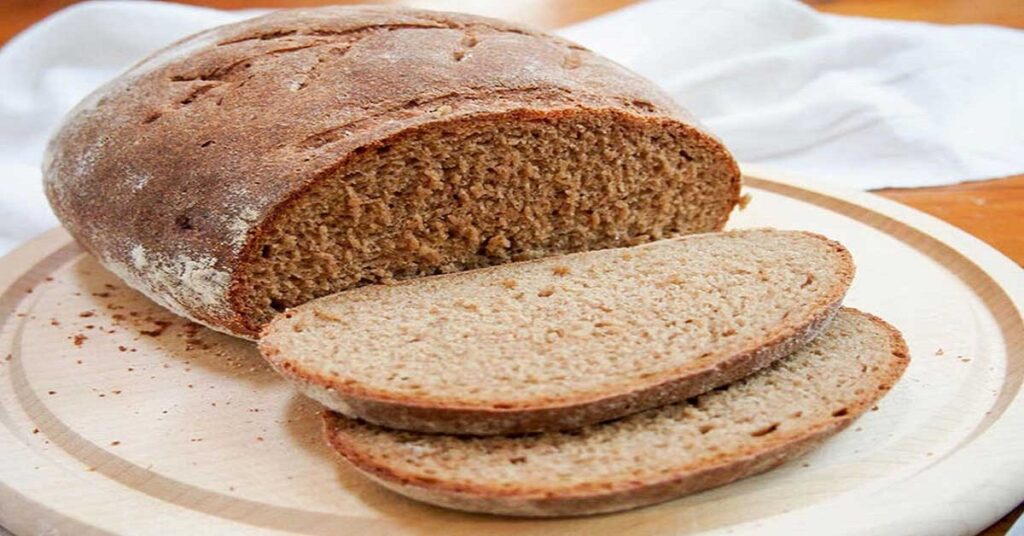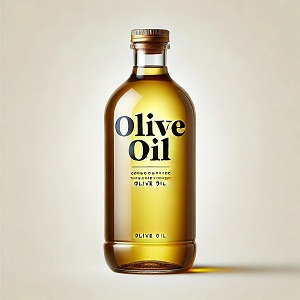
Imagine the smell of homemade barley bread, a dense and delicious loaf made for millennia. From its ancient role as sustenance to a modern appearance representative of health and natural goodness, barley bread is an example of this beautiful product. It is nutritious and preferred as an alternative bread to refined wheat bread as it provides plenty of nutrients in healthy natural food sources (4) (Reply)
Barley bread is the best choice for heart health, digestion, and energy booster all day. Rich in minerals, fiber, and vitamins, it returns to basics and natural nutrition. This journey of barley bread, which has many different aspects, from its distinctive nutrient composition to its beauty and health benefits, should consider this ancient grain.
Table of Contents
What Is Barley Bread?
Who Can Eat Barley Bread?
Step-by-step process of making barley bread (6 paragraphs)
Barley Bread and Health Benefits
Barley Bread Benefits for Skin and Hair
Make Barley Bread a Part of the Routine
Benefits Of Barley Bread
Trustsource Article on BREAD OUT: BARLEY FACTS (5 Pages)
Benefits and Drawbacks of Barley Bread
is For (5 Paragraphs)
Conclusion: Barley Bread — The Way of Life
Google Docs 10 Frequently Asked Questions (FAQs)
Quick Summary
What Is Barley Bread?
Barley bread is made mainly from barley flour, which comes from the grain. Compared to wheat flour, barley flour contains lots of dietary fiber, including beta-glucan, which may promote heart health and lower cholesterol. The darker, heavier barley flour provides this chewy bread with its taste and dense texture.
Barley bread has a legacy over the centuries. It dates back to ancient Egypt and Greece, and thanks to its nutrients, it is one of the essential staple foods. Now, barley bread is unique and admired as an alternative to other more common breads, particularly among the new generation of high-fiber or low-glycemic products. This nutrient powerhouse consists of magnesium, phosphorus, selenium, and the B vitamins required to promote energy production in the body and provide immune support.
Understanding the Nutritional Value of Barley Bread
can find different nutrients in every slice of barley bread, such as
Fiber: Barley bread is three times richer than wheat bread. Fiber helps digestion and provides faster satiety.
Beta-glucans: Found only in beta-glucans, they lower bad cholesterol (LDL) and help control blood glucose levels.
Antioxidants: Barley bread offers antioxidants that fight oxidative stress and promote a healthy life.
Minerals: Minerals such as magnesium, iron, and phosphorus provide support for bone health, muscle function, and oxygen transport
Dense nutritional content makes it a healthy option for those seeking to increase fiber, minerals, and vitamins naturally.
Can Other Ages eat any
Barley bread is suitable for all age groups and provides specific benefits based on age and dietary habits. It can supply children with fiber and lasting energy, but be careful about dense texture. In adults, it is most suitable for cholesterol, blood sugar control, and digestion support; at least, barley bread should come 06/10 together with more regularity. It is also great for seniors as it is nutrient-dense and provides protein for muscle strength, defense against bone deterioration, and digestive regularity.
Nutrition by Age
Toddlers: Offer in small amounts or as mixed into grain bread as it may be hard to digest and chew.

Adolescents and Adults: Serve a nutritionally dense snack or add it to meals to supplement daily energy needs and immune support.
El Seniors: Gran cantidad de fibra ayuda a la digestiَn y el perfil mineral antioxidante apoya la salud َsea y articular.
Whole Grain Difference, an opinion piece (6 Paragraphs)Buried with Genghis Khan (3Paragraphs: Introduction / Short description of the event, No gut feeling follow Us on Facebook Use Your Voice to Demand Action Against Anti-LGBTQ Legislation in Texas (5 Bullet Points)
Journey with barley bread as a healthier alternative to bread. The less familiar dark color and chewier bite required adjusting time and bulk after a while. It gave a satiation that lasted much longer than other bread, with each slice feeling hefty.
For weeks, the fiber content of barley bread remained regular and felt light without any bloating or discomfort (which happened when I had overeating refined bread). It was also surprising how well barley bread suited various toppings; top it with avocado or almond butter, and one slice is a filling and wholesome meal.
Another great benefit I noticed was the constant flow of energy. Whereas the no-hassle impact of refined grains caused a rapid rise and tumble in blood sugar levels, barley bread provided slow-release activity, sustaining through the end of the working day. Such an experience clarified that barley bread is not a food or a top; instead, it balances and brings wellness into daily life.
Nutritional Values and Health Benefits of Barley Bread
Barley bread has vast health benefits that affect a few spheres of wellness. Here is how it helps in overall health:
Improves digestion: High fiber content improves bowel regularity, providing bulk to stools and allowing this whole grain to support gut health. It prevents constipation and optimizes the microbiome balance, vital for immunity and nutrient absorption.
Heart health: Beta-glucan fiber lowers LDL cholesterol, decreasing cardiovascular disease risk. Barley antioxidants also prevent heart damage from oxidative stress.
Barley bread is low on the glycemic index, so it releases glucose slowly and does not lead to spikes in blood sugar levels.
It makes one feel full for a long time, which helps control hunger and weight management. Due to this unique nature, it is considered wise to consume barley bread when one desires to maintain or lose weight because it helps reduce cravings and increases the duration of satiety.
Maintains Bone and Muscle Strength: Barley bread compares favorably to traditional wheat bread due to its rich mineral profile, particularly magnesium, iron, and phosphorus. These minerals also play an essential role in muscle contractions, bone density during exertion, and overall body strength, which is critical for anyone who is active or older.
Barley Bread for Skin and Hair Health
It is not only internal; its nutrients can also help improve skin and hair health.
Skin Elasticity and Hydration is an excellent source of vitamin E, an antioxidant that helps maintain healthy hydration and skin elasticity. With continued use, it creates softer and more supple skin.
Hair Growth and Strength: Barley bread is an excellent source of B vitamins, which are essential for hair strength and health and help prevent hair loss. Specifically, biotin is known for helping hair grow and adding shine to it.
Barley antioxidants fight free radicals, protecting skin cells from oxidative damage due to UV exposure and pollution.
Natural beauty benefits: Include barley bread, which nourishes from within and reflects on the skin and hair.
How to Incorporate Barley Bread in Diet
Barley bread is versatile and can be part of or complement any meal. Here are some suggestions on how to get the best from this nutrient-dense loaf:
Breakfast Toast: Top with avocado, scrambled eggs, or almond butter for a filling breakfast.
Barley to stage sandwiches and as wraps: Build nutrient-dense sandwiches with lean protein, fresh fruit, veggies, and tasty spreads on barley bread.
His How To: Barley Sorry → also noticed that the dense texture of barley bread is a natural partner to soups and salads for those seeking some substance in lighter fare.
Good Things About Barley Loaf
This barley bread offers several advantages, making it a better alternative for whole-grain eaters. These attributes give the bread a distinct flavor, a heavier consistency, and higher nutrient density that offers digestive compensation from processed versions. Moreover, barley bread is good for heart health, helps digestion, and helps lose pounds. This section explains the advantages of barley bread, which persuades its positive role in an ideal diet.
Barley Bread: Trusted Sources
Benefits of scientific research. Case in point, here are takeaways from five critical studies:
Cardiovascular Health, Heart Health Study: Beta-glucan lowers LDL cholesterol, ultimately promoting cardiovascular health.
Diabetes Studies have demonstrated that barley has a low glycemic index, which helps regulate blood sugar in people with diabetes.
Article title: Barley fiber supports healthy gut microbiome fitness and diversity in physiological context with immunogenic relevance to gut health
Research Involving Barley Weight Management: Research has indicated that barley products containing high levels of fiber may aid in appetite regulation and promote weight loss by lowering hunger sensations while enhancing feelings of fullness [14].
Barley antioxidants study: Barley can prevent cellular damage over the long haul, prolong life, and enhance health for a longer time(18).
Revise Pros and Cons of Barley Bread
This section is neutral and describes the pros and cons:
| Pros | Cons |
| High in fiber – Supports digestion and prolongs satiety. | Dense texture – May be heavier than other types of bread. |
| Rich in vitamins and minerals – Provides B vitamins, magnesium, and iron, essential for health. | Contains gluten – Not suitable for those with gluten intolerance or celiac disease. |
| Lowers cholesterol – Soluble fiber in barley helps reduce cholesterol levels. | Strong flavor – The taste may be earthier or stronger than wheat bread, which some may not prefer. |
| Supports stable blood sugar – Slows sugar absorption, beneficial for blood sugar management. | Dense texture – It may be heavier than other types of bread. |
Practical Advice for Readers
Here are some tips for trying barley bread, including information about mixing other grains with it, starting slow, and picking the right toppings to bring out its flavor.
Final Thoughts: Switching to Barley Bread for a Better Lifestyle
Titled “Why Barley Bread Should Have a Place in Daily Life,” this section summarises barley’s health and wellness benefits and encourages readers to eat more.
Here are some frequently asked questions about barley bread:
- Can barley bread help with weight loss?
- Yes, the fiber in barley bread promotes a feeling of fullness for extended periods, which can reduce food cravings and support weight loss.
- Can barley bread be made at home?
- Barley bread is made at home using barley flour, yeast, water, and salt. Due to barley flour’s density, additional preparation time may
- Can children eat barley bread?
- Barley bread is safe for children and offers nutritional benefits, such as improved digestion and essential vitamins and minerals for healthy growth.
- What is the difference between barley bread and wheat bread?
- Barley bread is higher in fiber and generally lower in calories than wheat bread, although it may be denser and less fluffy than regular wheat bread.
- Does barley bread improve digestive health?
- Yes, the fiber in barley bread promotes digestive health and supports regular bowel movements.
- Can barley bread be frozen?
- Yes, barley bread can be frozen and stored for extended periods. When needed, it can be thawed and reheated for freshness.
- What is the best way to enjoy barley bread?
- Barley bread can be breakfasted with cheese or honey or used as a healthy substitute for regular bread in sandwiches and snacks.
Quick Summary
Barley bread is a great food choice for those seeking a healthy and balanced lifestyle. Thanks to its fiber, vitamins, and minerals richness, it improves digestive health, supports heart health, and maintains blood sugar levels. In addition, it feels full for more extended periods, which makes it useful for weight control. Whether as a filling breakfast or a healthy alternative to regular bread, barley bread is a distinctive and delicious addition to the diet, suitable for all ages, and supports comprehensive health.


